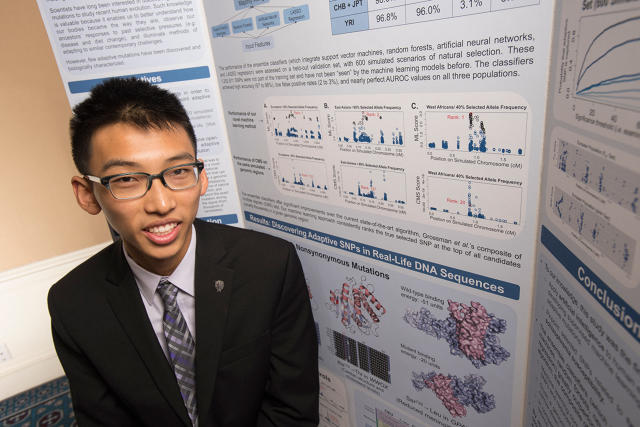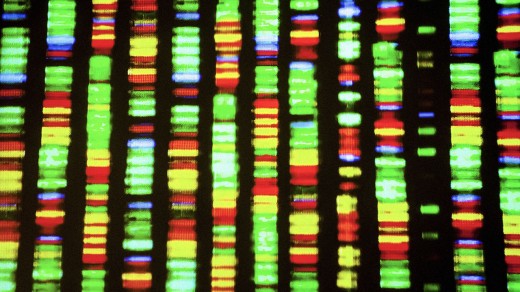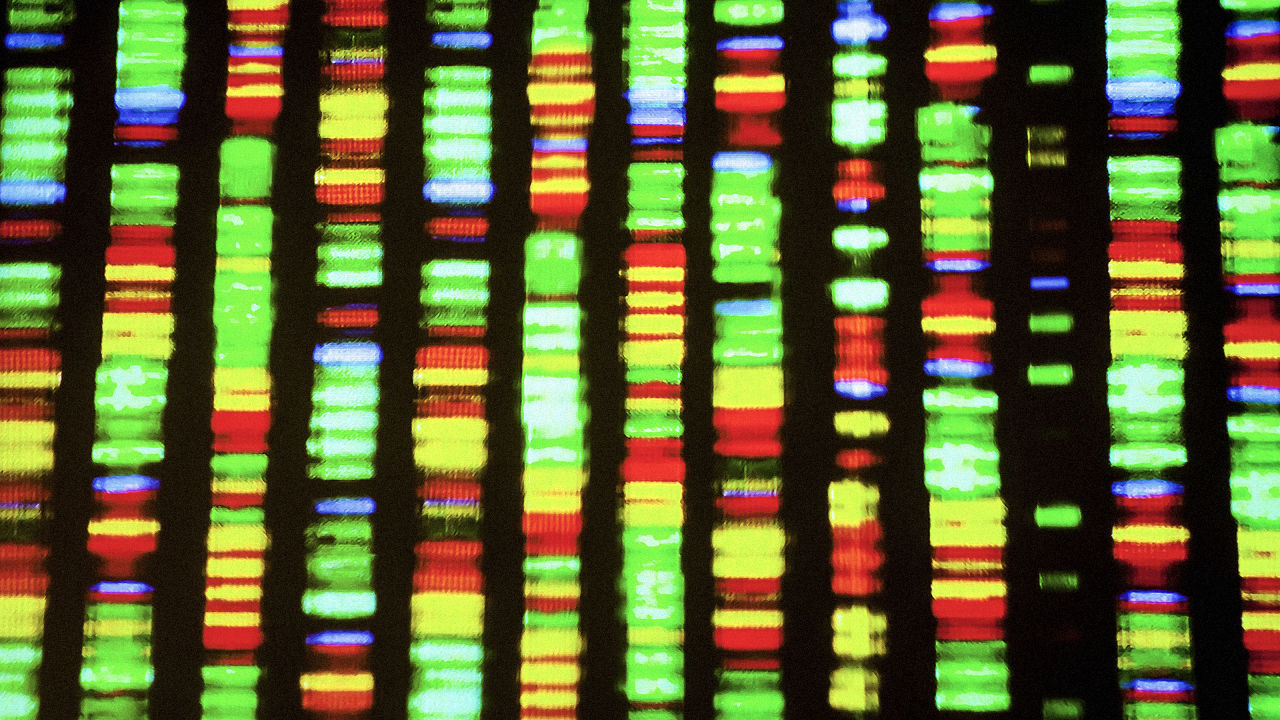This 17-Year-Old Has Discovered DNA Mutations That Could Combat HIV And Meningitis
High schooler Andrew Jin is answering previously unasked questions in biology.
Like plenty of science-oriented high school kids, Andrew Jin is interested in human evolution. But Jin, one of three $150,000 first-place winners in this year’s Intel Science Talent Search, took that interest further than most. For his project, the high school senior came up with machine learning algorithms that detect mutations in the human genome—mutations that could one day be used to develop drugs to combat diseases like HIV and schizophrenia.
Initially, Jin wanted to investigate how humans have evolved over the past 10,000 years. “I was doing it out of curiosity,” he says. “I started thinking about natural selection and evolution, and that we understand so much about its theory, but we know nothing about reality. I was curious about what mutations help us be sophisticated human beings.”

Jin decided to examine 179 human DNA sequences from different parts of the world. Each sequence consisted of 3 million base pairs of DNA—far too much to look at without help from an algorithm. So he set up a machine learning algorithm and found 130 potentially adaptive mutations, related to things like immune response and metabolism, that played a role in human evolution.
Working from a summer program at MIT, Jin refined his research and came up with a handful of mutations, including ones involved in resistance to meningitis and decreased susceptibility to viruses like influenza and HIV, that could potentially be used by pharmaceutical companies in new drug development.
There have been other natural-selection studies in the past looking for adaptive mutations, but Jin says that many of his findings are new. There’s still a long way to go before he starts chatting up Big Pharma, however. “There’s very, very strong evidence for these mutations playing a role in disease resistance, but in order to confirm, I would have to do biological experiments to study their protective mechanisms. That’s what I’m interested in doing now,” says Jin.
Once he gets to college (he’s not yet sure where that will be), Jin plans to pursue computer science or biology. But that’s not all he’s good at: The teen is a talented pianist who has played at Carnegie Hall. “I’m also an avid Boy Scout,” he says.
[Top photo: Gio.tto via Shutterstock]
Fast Company , Read Full Story
(300)














